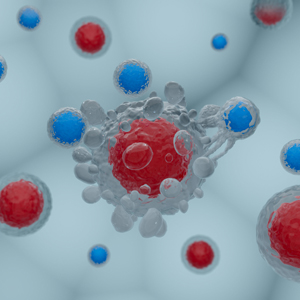Leukemia
-
The Push for Inclusive Cancer Care
People with intellectual or developmental disabilities face obstacles to receiving appropriate cancer screening and treatment. Advocates are calling on the health care system to meet their needs and increase access to care.
by Thomas Celona
-
Facts and Stats
From Lab Experiment to Lifesaving TreatmentDecades of research and clinical trials led to CAR T-cell therapy becoming a critical blood cancer treatment.
by Thomas Celona
-
CAR T-cell Therapy: Understanding the Warning and the Risks
The FDA requires a warning with CAR T-cell therapies about an increased risk of cancer from the treatment. Should you be concerned?
by Sandra Gordon
-
Survivor Profile
A Can-Do SpiritNavy veteran and two-time cancer survivor Bruce Wright helps other veterans secure benefits for their health conditions.
by Lindsey Konkel Neabore
-
Living With Chronic Blood Cancer
Thanks to medical advances, more people with blood cancer are living for years or even decades after their diagnosis. But when these diseases are incurable, patients must learn to adjust to ongoing monitoring and treatment.
by Kendall K. Morgan
-
Q&A
Pulling Back the Research CurtainJessica Wapner looks back on the scientific discoveries that transformed outcomes for chronic myelogenous leukemia.
by Marci A. Landsmann
-
Taking Stock of CAR T-Cell Therapy
Five years after the FDA approved the first CAR T-cell therapy, use of the treatment has expanded to many patients with blood cancer.
by Kendall K. Morgan
-
Comorbidity: Treating the Whole Patient
Patients with cancer often have at least one other chronic disease. Researchers hope to shine a light on how conditions and treatments interact in patients with chronic lymphocytic leukemia and other cancer types.
by Eric Fitzsimmons
-
Cracking the Code of Acute Myeloid Leukemia
Testing for chromosomal abnormalities and gene mutations helps to direct treatment for patients with AML.
by Kendall K. Morgan
-
Forward Look
CAR T Cells for Blood Cancer PatientsResearchers aim to minimize disease relapses by targeting multiple proteins.
by Erin O'Donnell














